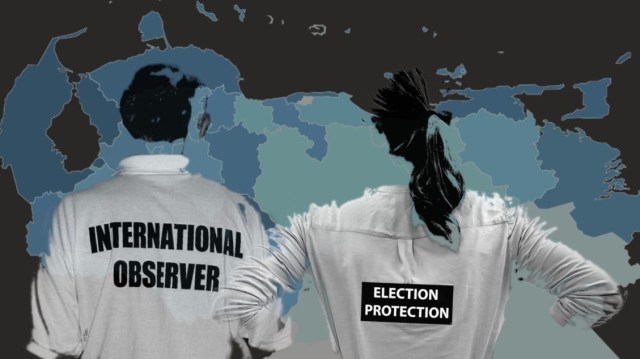
Candidates and parties are gearing up for the regional elections announced for November, but we are still waiting for proper audits, global observation, and full participation.
By Caracas Chronicles – José Alberto Vargas La Roche
Aug 3, 2021
I must start this off by saying that every Venezuelan election since 2017 has lacked any legitimacy, not only due to the partisan nature of the National Electoral Council (CNE), the country’s top election arbiter, but also because there haven’t been enough guarantees for elections to meet the universally accepted attributes of freedom, fairness, transparency, and competitiveness needed for them to be considered truly democratic processes.
The upcoming elections for regional and local authorities close in, with some of the most visible opposition parties seemingly having made their minds to leave behind the abstentionism they enforced since 2017 and participate in them, as well as strong international actors – especially European Union diplomacy, led by Josep Borrell, known for being pretty tolerant of chavismo – showing a willingness to relax sanctions against the regime in exchange of minimally tolerable elections. Bearing this in mind, a fundamental question arises: have we finally met the conditions for a free, fair, transparent and competitive election?
Firstly, we need to take into account that a few months ago a new directive of the CNE was appointed, comprising a majority of governing party members and a minority of opposition figures. This prompted some political pundits to give their blessing, seeing it as a good sign, a step toward better electoral conditions. Some hardcore electoral enthusiasts even considered the new composition of the CNE as sufficiently good a guarantee for the opposition to make their way back into the electoral battleground, and for now, three of the big four antichavista parties seem to have bought into that idea.
They are wrong. Reality is very different. Though the new CNE board includes experienced opposition members—like former political prisoner and electoral adviser to the Mesa de la Unidad Democrática, Roberto Picón—and not just government puppets, it’s far from being balanced.
Chavismo still has a tight grip over the electoral administration as a whole. The president of the CNE, Pedro Calzadilla is a former minister of Chávez and Maduro, and the Junta Nacional Electoral, a key bureau commissioned with all the operational parts of every election, is presided by Tania D’Amelio, a former chavista congresswoman, just to name a few major figures, so this new composition isn’t enough a guarantee to consider that any election has the aforementioned democratic attributes.
Being this the case and having the certainty that, despite their highly dubious legitimacy – due to their political affiliations and the National Assembly that put them in charge own’s illegitimacy – the current top electoral officials will still be in office by November’s election without having their authority contested by the opposition parties, there are still plenty of other requisites that need to be met so those attributes can be reached. Specifically, three of them are non-negotiable.
One: Serious Audits
For starters, we need adequate audits to the electoral system and the voting results. Venezuela uses an electronic voting system, and since it has a high degree of technical complexity and needs to be constantly updated, it’s of the utmost importance for every political actor involved in an election to audit its software and hardware components.
Since the opposition withdrew from the electoral scene, the adequacy of that electronic voting system has been questioned. Not only has the CNE plainly removed some software audits, it has also reduced the time for the remaining ones to be thoroughly implemented. Furthermore, these audits are basically performed by the CNE’s own technicians, reducing the role of independent organizations and political parties’ roster of experts to mere watchers. The object of control, and not the auditors, oversees itself.
What’s more, there’s been a sequence of events that put Venezuela’s electronic voting system under the microscope. First of all, the company that designed the system and supplied the technology for over a decade, Smartmatic, rang the bells for the possible oversizing of the National Constituent Assembly’s 2017 election results in over a million votes. After that, the CNE rescinded Smartmatic’s contract and hired a new company: Ex-Clé Soluciones Biométricas, which is sanctioned by the U.S. and little is known about its methods. Finally, they changed to a new electronic voting system last year since all of the CNE’s electronic voting assets burned to ashes after a fire broke out where they were stored.
All of this makes it impossible to know that the voting system won’t be tampered with in upcoming elections. Only the unreliable CNE and its suppliers have direct access to it. Independent, serious audits are needed, period.
Audits don’t end with technical proceedings, they also include “citizen verification,” which is nothing but the process of counting each individual vote on the paper traces issued by the voting machines every time someone cast their vote, and comparing them to the results that the machine generates after automatically counting the votes stored in its memory, in voting centers selected at random.
…
Read More: Caracas Chronicles – The electoral guarantees Venezuela needs
…

